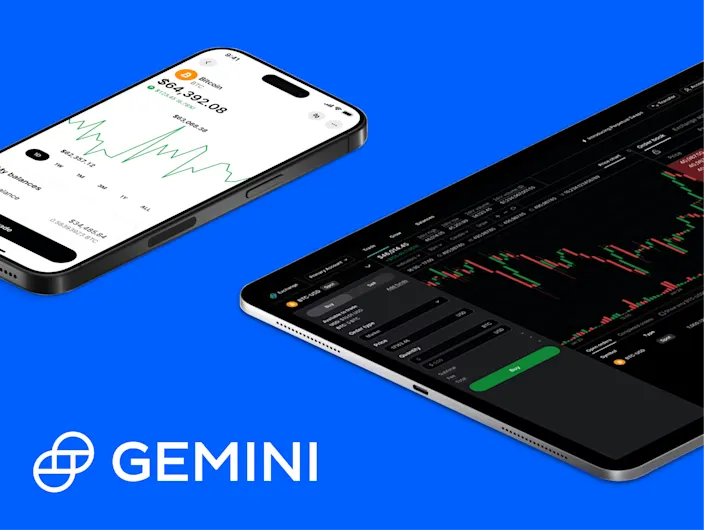CUSTOMER Q&A: Coinbase
A look at the future of crypto with Coinbase

Customer Interview
Through crypto’s incredible ups and downs, Coinbase has retained steady growth. They achieved this by leaning into areas like regulation and creating a safe financial ecosystem for crypto.
Instead of being concerned with short-term gains, they remain focused on their long-term mission of increasing economic freedom and creating a world where crypto transactions are seamless and ubiquitous. These are lessons those looking to build a long-lasting fintech can learn from.
In this interview from Plaid Effects, Zach Perret, Co-founder and CEO of Plaid, spoke with Emilie Choi, President and COO at Coinbase, about leading teams during volatile times, the path to legitimizing crypto, and building a better, more seamless financial ecosystem.
This interview has been edited for clarity and length.
Perret: When you started at Coinbase around six years ago, the company was different and crypto was different. Tell me what it was like back in the early days and how that growth journey has been.
Choi: I worked at several consumer internet companies, most recently LinkedIn. I became interested in the disruption of the traditional financial system.
I signed my offer letter for Coinbase in December 2017, at the peak of the bull market. Soon after, the market cratered, and I wondered if I had made a terrible career decision.
I looked around, and some of the best OGs in the space were continuing to build and focusing on the future. They weren't unsettled by the ups and downs of a disruptive industry. So I put my head down. I worked hard, and it's been an incredible journey.
Perret: Every startup is a bit of a rollercoaster. Coinbase is that on a totally different scale. You have crypto winters. You have boom times. How do you manage the team through that? How do you keep people motivated?
Choi: The quote we typically use is: ‘It's never as bad as it seems, and it's never as good as it seems.’
That's a great mantra for life. It's easy to get overly exuberant when things are peaking, and it’s easy to get down when the market bottoms out. We look for people who truly believe in the mission, which is to increase economic freedom in the world. And if people are missionaries, not mercenaries, they're here for the long term. They're here to build and build and build. They know that they're contributing to the mission.
Perret: Coinbase has emerged as this continually shining light of positivity in the crypto industry where there’s a lot of pressure, including new regulations. Tell me about the journey that you went on to legitimize not just the company, but the entire industry.
Choi: I have to credit Brian Armstrong and Fred Ehrsam, the company’s co-founders because they did pretty counterintuitive things. Crypto is kind of considered this libertarian movement, and they actually leaned into compliance and regulation even during our early days. We recognized the importance of a sound, safe financial system. This has held us through all the industry's ups and downs. We focused on going steady and making the right investments, and that contributed to our being a beacon in the industry.
Perret: I've always been impressed with the way you’re able to speak externally about complex things you're dealing with internally, be that your culture or beliefs on the crypto industry. In fintech, it's often hard to talk about policy matters publicly, but you've done an excellent job. How have you built that practice into the company?
Choi: It’s been through a lot of learning and hard reps.
One of the things Coinbase is known for is taking a stand on ‘no politics at the office’ several years ago. Brian Armstrong is a very brave CEO who intuitively knew that was the right thing to do. Some people didn't like it, but it was one of the best things we've ever done because we had a clear contract with our employees about what we expected at the office. And that's if we're all focused on the mission of increasing economic freedom in the world, we focus on the things that bring us together, not apart.
Similarly, we've had quite a few policy battles. The old playbook for financial institutions is to have back-door conversations or go to the mainstream media and make your case. We decided to say what we're really thinking, what our legal case is, what our policy case is, why people should care about crypto, and why we think that there needs to be updated legislation.
We decided to go direct to our user base and politicians through our own channels. And I think it's actually become a paradigm for what others want to model themselves after.
Perret: To shift gears a bit, I want to talk about onboarding. Coinbase has set the standard for new user onboarding in crypto, but you've challenged the broader financial services industry as well. Coinbase’s Super Bowl ad was just a QR code bouncing around the screen. You got a huge influx of new user signups then. How do you think about scaling user onboarding while balancing risk?
Choi: It's one of the biggest hurdles we have faced, given the volatile nature of crypto. We have to think about how to seamlessly onboard new users while maintaining high security and compliance.
The Super Bowl ad, which I'm super proud of, was one of those seminal moments for us. It was the first Super Bowl ad we'd ever done. We reached around 40 million households and had a high conversion rate. It resonated with users because it was so fresh and different. During moments like that, we have to make sure that we're prepared to onboard those users as quickly and seamlessly as possible while also identifying potential risks and fraud.
One of the reasons we love partnering with Plaid is that the onboarding experience is so seamless that we're able to scale it rapidly.
Perret: It's been a fun journey, and we so appreciate the partnership and feedback.
Let’s talk about the institutional side of your business. How do you balance the needs and complexity of your consumers with growing institutional expectations?
Choi: Our bread and butter is the consumer—that's what the whole company was predicated upon. We recognized that, at some point, institutions would want to come into the mix, and the last year has been a story of institutions.
The Bitcoin ETF approvals have been huge for the industry. Coinbase is really proud that we power most of the custody for those institutions.
Seeing traditional financial institutions that are conservative about the way that they allocate their assets, recommending 1% to 5% of assets in crypto because they think there's huge potential for digital assets was a moment of validation. Institutions drive a ton of volume for crypto and the traditional financial market, and I think it's the beginning of something much bigger.
Perret: Initially, many larger institutions were against crypto. Now, they’re investing in digital assets, and some are even launching their own trading desks. This has to be an amazing opportunity for you to partner with a broader ecosystem and grow the business.
Choi: It’s an incredible learning opportunity for both sides. We have a lot to learn from TradFi (traditional finance). Those institutions have been doing this for hundreds of years. They have incredible departments related to risk, KYC, AML, and more. From us, they're learning that digital assets are compelling to offer to customers.
Perret: What do you wish were different about the financial system? What should be easier to access?
Choi: The traditional financial system has elements that feel clunky and outdated. Instant settlement and global access should be no-brainers. Onboarding should be more seamless than it is today, and 24/7 trading seems so obvious.
I’m excited to see how we can continue to push what's possible.
Perret: Let’s fast-forward to 2034. What's different, and how has crypto fully changed the financial system? Are we doing USD Coin transactions instead of ACH? Or something else?
Choi: A dream would be that you're doing virtually all your financial transactions in crypto and don't even know it. It's become just a layer of technology in the same way that TCP/IP powers the internet. You don't even realize what you're doing, but everything is working so much faster and better. That can span everything from the way you do transactions and trades to the way you develop on different blockchain platforms such as Base.
Perret: Many fintech companies aspire to be like Coinbase. What should they focus on as they build?
Choi: I learned this from Jeff Weiner (former CEO) at LinkedIn. Talent should always be your number one operating priority. If you hire A players who will oversee the business in the best way possible, it's all going to take care of itself.
That's where I spend a lot of my time and energy—finding people who are truly connected to the mission, and then everything sorts itself out.
More customer stories

Gemini provides a secure and regulated marketplace for cryptocurrency
Read story
A fast, flexible payday solution
Read story
Growing and diversifying digital asset portfolios
Read story